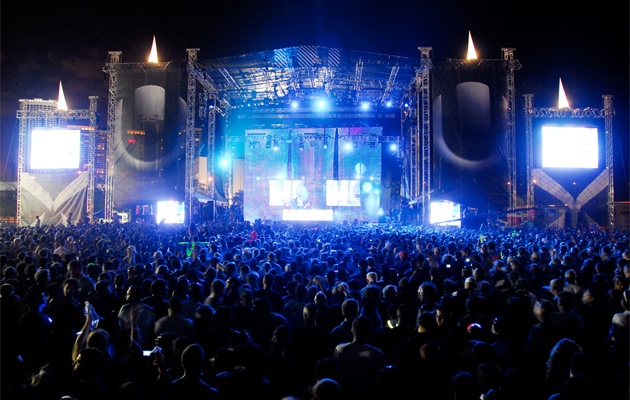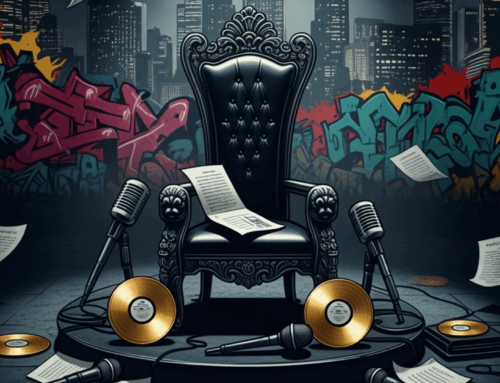 This past fall brought two innovative DJ tours to North America. While, ordinarily, the concept of Richie Hawtin or Boys Noize playing a string of U.S. and Canadian dates is nothing extraordinary, particularly considering the quick rise of the genre stateside, both performers set out with similar agendas: To teach budding fans about the other side of dance music.
This past fall brought two innovative DJ tours to North America. While, ordinarily, the concept of Richie Hawtin or Boys Noize playing a string of U.S. and Canadian dates is nothing extraordinary, particularly considering the quick rise of the genre stateside, both performers set out with similar agendas: To teach budding fans about the other side of dance music.
Hawtin, a Canadian native not too far from Detroit, has a lengthy career behind him: one extending from the U.S. emergence of house and techno, and with it subsequent, higher-profile raves, through touring in the 1990s as Plastikman, and now settling but nonetheless innovative as a minimalist techno producer in Berlin. Hawtin’s tour, CNTRL: Beyond EDM, touched base at several U.S. and Canadian colleges in October and November. Along with Loco Dice, DJ Tech Tools’ Ean Golden, and Dubspot, Hawtin presented a lecture series about the genre’s several subgenres and origins, technology, and creation in the day and held live performances at night.
Spin caught up with Hawtin at the end of the Ibiza summer season in 2012, asking the venerated techno producer about CNTRL. Ibiza, it appears in recent years, is a microcosm of U.S. meeting European electronic sounds, of performers like David Guetta and Skrillex garnering greater influence and European artists striving it hit it big stateside. This confluence of changes and aspiration, along with inspiration from Tiesto’s recent college tours, spurred Hawtin to come up with CNTRL’s education-meets-exposure concept.
Hawtin explained to Spin, “To us, EDM is too narrowly defined in North America right now, and we want to come in there and blow that open. There are hundreds of genres and subgenres in electronic music which all kind of fuse and work together to create new subgenres, and it’s time to talk a little more about that. This is our pathway. And we’re trying to keep our pathway a little bit open, not only on a historical level, inviting people like Kevin Saunderson and Carl Craig, but also having Ean Golden involved showing the controllerism side. I’m hesitant to use the word “underground,” but let’s say these are the deeper shades of electronic music.”
Incentive to expose North American EDM fans to more experimental subgenres and sounds also appears to be Boys Noize’s motivation for his current tour leg. As we have touched on, the producer born Alex Ridha is introducing a new live setup for this excursion, but in exposing fans and listeners to his sounds, the DJ and label manager wants to steer them away from the pop centric compositions topping the charts and receiving the greatest amount of U.S. exposure.
Ridha, in an interview with Mixmag, said, “But it is actually really exciting going to the USA and I feel like I’m on a mission to bring the good stuff to them and that’s way I’m playing the tour. It’s cool because there’s a lot of young people who have just discovered dance music probably through more mainstream ways and for me it is a good challenge to show those people a bit more depth to electronic music.”
Could the educational EDM tour turn into a trend, particularly for experimental or European performers looking to gain greater visibility in the U.S.? If so, there are a few areas, based on common educational courses in electronic music and production, that we think should be touched on.
History
Hawtin, particularly, has his head in the right place regarding exposing fans to the genre’s history. EDM in the U.S. didn’t materialize overnight, and Hawtin’s varied career embodies that.
Yet, even with producers like Hawtin, Kevin Saunderson, and Loco Dice performing and participating in CNTRL, electronic music began decades before the 1980s. Use of electronic instruments truly dates back to the middle of the 20th century in classical music. Pop and rock performers tinkered with synthesizers in the 1960s and ‘70s, and by the early 1980s, synthpop acts like Depeche Mode and New Order took the sounds and technology to a new level.
Disco, somewhat tangential to the technological history of the genre but integral to the sound, is also crucial. No comprehensive electronic music lecture could be complete without a brief mentioning.
Modern Influences
If David Guetta appears as the shining leader of modern EDM history, think again. No performer truly embodies the current musical climate, but rather social media, and the internet on a greater scale, is the driving force, regardless of which producer tops the charts and DJ Mag’s list. In modern times, social media is the catalyst for the genre’s emergence stateside, for the transition from clubs to concert venues, and for exposure and record sales.
Courses focusing on the music business, such as this one from Point Blank Online School, greatly consider this aspect. Albeit geared toward a producer marketing himself, understanding the changing music business and the course-veering force of the internet cannot be overstated.
The Culture
EDM’s evolution has encompassed more than sounds, production styles, genres, and sounds. Its culture has changed equally, as well, and shouldn’t be ignored. University of Delaware’s “Rave Culture and the Contemporary Electronic Dance Music Scene,” for instance, incorporated past and present dance music culture — essentially, the economical and historical forces shaping everyone from club kids to PLUR-practicing 1990s ravers to the older-skewing modern-day club and festival crowds.
How It’s Made
Although several schools, both standard and online, offer training on Ableton, Logic, and even drum machines, perhaps the most crucial aspect of making music is understanding how sounds and chords are put together. Dubspot’s Musical Foundations class, for instance, focuses not only on electronic dance music’s origins (this is likely one of the reasons Hawtin included them for the lecture and masterclass portion of CNTRL) but also rhythmic and melodic theory. As Dubspot explains in their course synopsis, previous producers had several years of conservatory-level theory and performance training but restricted access to technology, while, in the present, aspiring producers are more likely to pick up a free version of Ableton online while having no understanding about chords or phrase structure.




